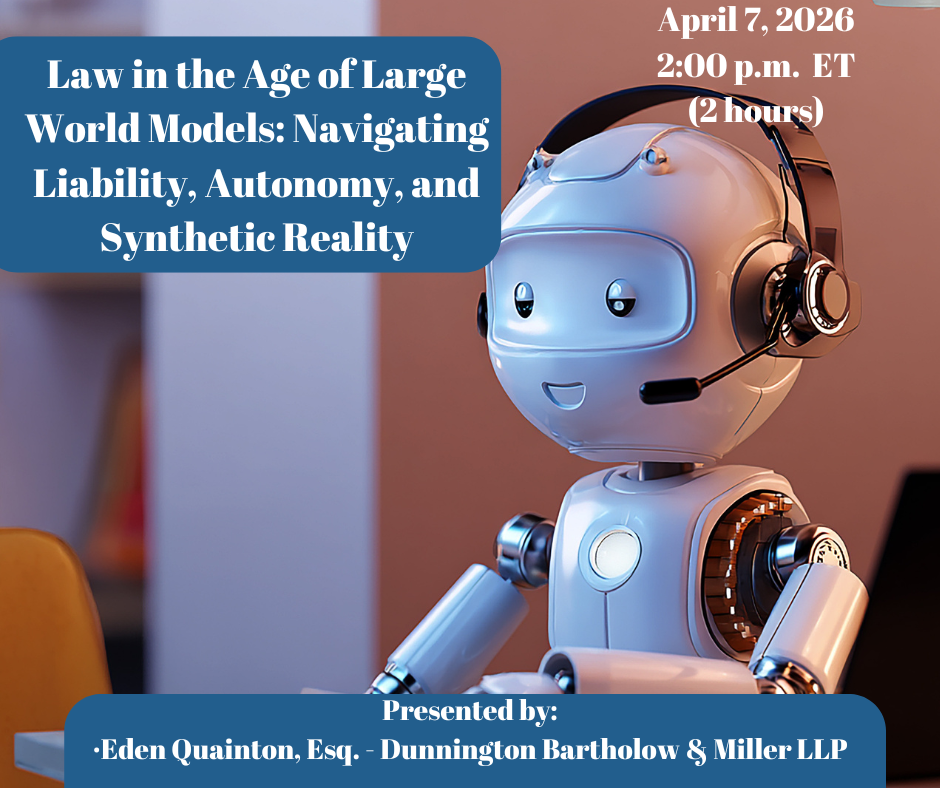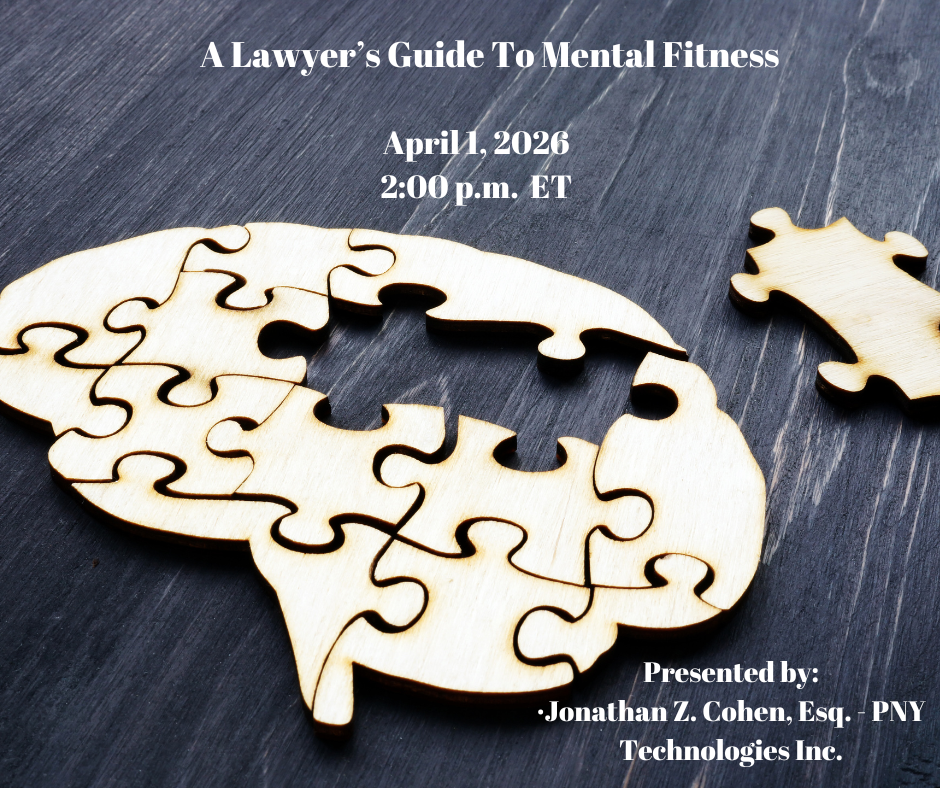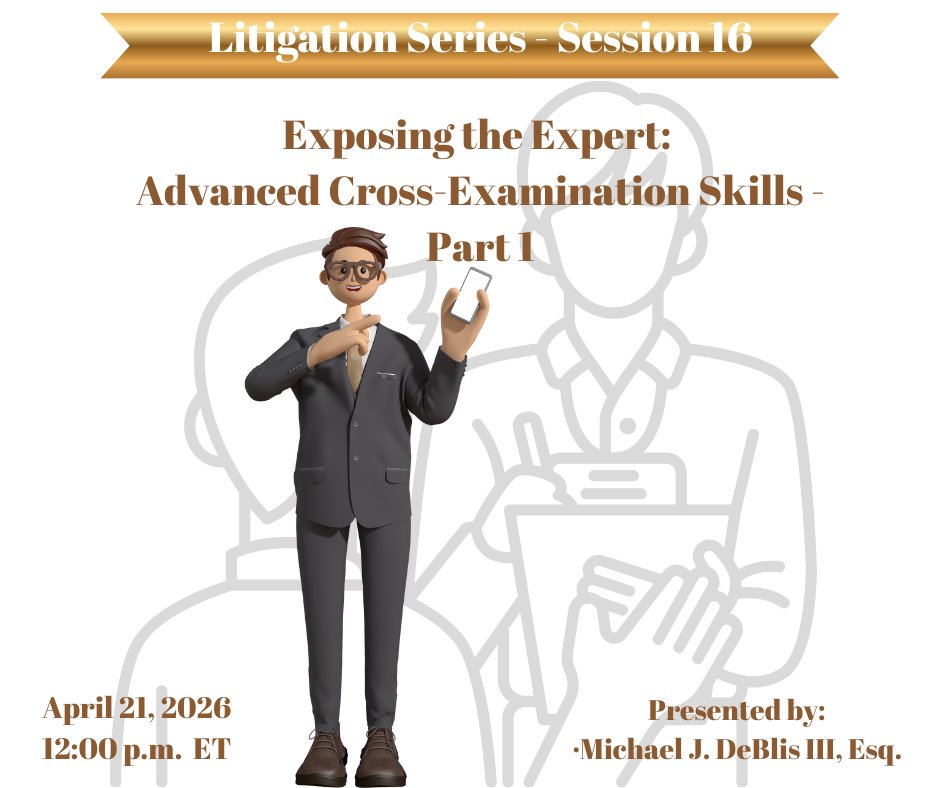
Exciting new series on “Voice, Body and Movement for Lawyers – How to connect with the jury and find Justice Through Dramatic Technique!”
Click here to find out more
This course explores the transformative impact of artificial intelligence (AI) on litigation practices. It covers the practical applications of AI in daily legal work, from summarizing documents, drafting pleadings, to conducting depositions, with an emphasis on responsible adoption and ethical considerations. Participants will gain insights into how AI-assisted drafting, legal research, and innovative deposition and transcription services can enhance their practice and improve efficiency.
Learning Outcomes:
• Understand the ethical implications and professional contact standards related to AI in litigation. Apply AI tools to improve efficiency in legal drafting and document management.
• Implement AI-enhanced legal research techniques for more in-depth case analysis.
• Access the benefits and limitations of AI-assisted deposition and transcription and analysis. Integrate AI technologies into law firm workflows while maintaining confidentiality and ethical standards.

This program provides a comprehensive analysis of the Sixth Amendment Confrontation Clause as reshap...

This course breaks down GAAP’s ten foundational principles and explores their compliance impli...

This CLE session introduces attorneys to budgeting and forecasting concepts used in corporate planni...

Large World Models (LWMs)— the next generation of AI systems capable of generating...

This CLE program examines attorneys’ ethical duties in managing electronically stored informat...

This presentation teaches attorneys how to deliver memorized text—especially openings and clos...

In “Choosing the Right Business Entity,” I will walk through the issues that matter most...

Navigating Stress and Trauma in the Legal Profession, explores the unique challenges faced by legal ...

‘A Lawyer’s Guide To Mental Fitness’ is a seminar designed to equip professionals ...

Part 1 - This program focuses specifically on cross?examining expert witnesses, whose credentials an...